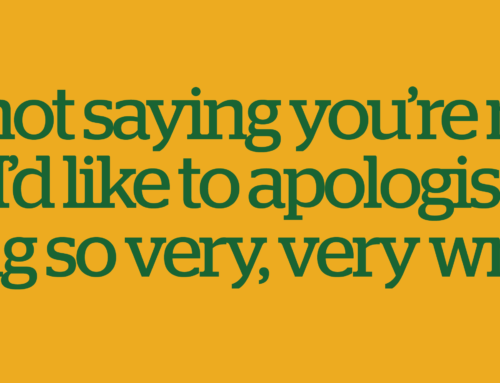Waleed Ali won the Gold Logie last night for most popular TV personality in Australia.
Noni Hazlehurst was inducted into Australian Television’s Hall of Fame. Only the second woman to be inducted in over 30 years.
Indigenous Australia was more visible than it has been in a while with “The Secret River”, “Redfern Now” and “Ready For This” all getting gongs.
Hillary Clinton looks like she’s all but wrapped up the Democratic party nomination in the US election.
London has a new Muslim Mayor.
There are more female presenters on television than ever before.
It’s a sign of the tides.
People are getting recognition for their ability. Not their gender. Or the colour of their skin.
Hooray for that.
Not before time.
Yay.
Every time someone breaks a societal chain, or busts a cultural convention, or shatters a glass ceiling, we hear people talking up the importance of role modelling. How African American children in the US can now believe they could be President. How women are slowly (glacially) achieving equality. How minority voices are getting heard.
Yet.
Despite how we stand and applaud whenever someone says something we know instinctively to be right. Despite how proud we feel when the person on the soapbox says the thing we believe to be fair and just and true. Despite how good we feel when the world aligns with our values. Despite how much we love to hear people who have succeeded talk about how important cultural modelling is.
Despite all this.
Why do we not insist on feeling like this in our workplace?
To be clear.
I’m not talking about discrimination. Or fighting discrimination. Or triumphing over discrimination.
Or equity. Or racial or gender bias. (There are rules and laws and expectations which protect against overt and not-so-overt discrimination.)
I’m talking about something as simple as feeling good about ourselves. About aligning the promise of the organisation with the experience of it.
Feeling like our actions match our expectations.
Feeling like we should be able to reach for the moon every single day. Like we can. Like we’re expected to.
We take our cultural cues from the people we admire. From the people who have leverage in our world. From our bosses and our peers.
All of the people mentioned at the start of this little piece seem to be in the game for more than just a pay packet and fame.
They seem to represent something bigger than themselves.
They seem to have a purpose. They seem to be fighting for something.
Something good.
Businesses and organisations with a defined purpose are more likely to be successful than those without. (Well that’s according to Forbes Business and Deloitte. The fine folk at Harvard agree. They also point to the importance of making the purpose obvious if you want to see the cultural and business benefits.)
If the people we work with are in it to make their world better, we want to help.
If the people we answer to are just in it for the money, chances are we will be too.



Leave A Comment